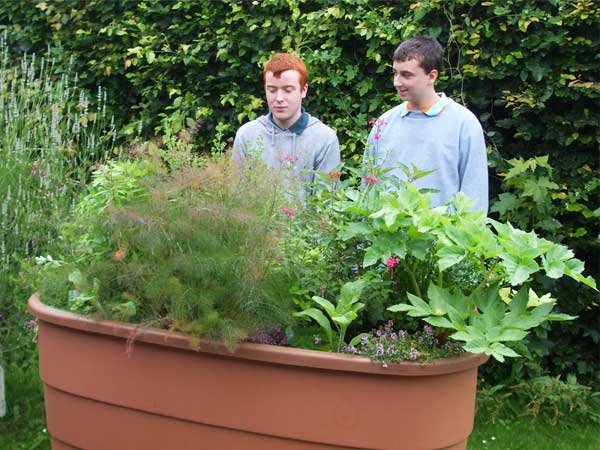5 Ways Green Circle Accessible Gardens Empower Students with Disabilities
Inclusive Learning Environment:
Green Circle Accessible Gardens create a welcoming and inclusive learning environment by providing accessible raised garden beds, pathways, and tools. These features ensure that students with disabilities can actively participate in gardening activities, fostering a sense of inclusivity and belonging.
Hands-On Learning Opportunities:
Green Circle Gardens offer hands-on learning opportunities that cater to diverse learning styles. Students with disabilities can engage in sensory experiences, learn about plant biology, and develop practical gardening skills using the accessible features of the garden, such as adjustable height raised beds and ergonomic tools.
Therapeutic Benefits:
Green Circle Accessible Gardens provide therapeutic benefits for students with disabilities, including stress reduction, improved mood, and increased self-esteem. The calming outdoor environment and the opportunity to connect with nature enhance the mental well-being of students, promoting a sense of relaxation and emotional resilience.
Social Interaction and Community Building:
Green Circle Gardens promote social interaction and community building among students with disabilities and their peers. Collaborative gardening activities encourage teamwork, communication, and peer support, fostering meaningful relationships and a sense of camaraderie within the school community.
Empowerment and Independence:
Participating in Green Circle Garden activities empowers students with disabilities by enhancing their confidence, self-efficacy, and independence. The accessible features of the garden, such as raised beds with adjustable heights and easy-to-use tools, enable students to take ownership of their gardening tasks and develop valuable life skills, such as problem-solving and decision-making.
Overall, Green Circle Accessible Gardens serve as transformative spaces where students with disabilities can thrive academically, socially, and emotionally. By providing inclusive learning experiences, therapeutic benefits, opportunities for social interaction, and a sense of empowerment and independence, these gardens empower students to reach their full potential.





